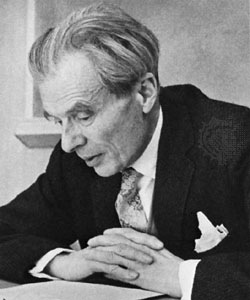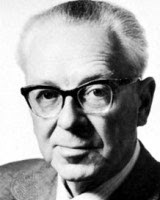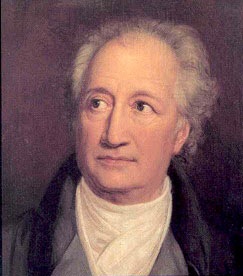A Recipe for Paradise

“If we could sniff or swallow something that would, for five or six hours each day, abolish our solitude as individuals, atone us with our fellows in a glowing exaltation of affection and make life in all its aspects seem not only worth living, but divinely beautiful and significant, and if this heavenly, world-transfiguring drug were of such a kind that we could wake up next morning with a clear head and an undamaged constitution — then, it seems to me, all our problems (and not merely the one small problem of discovering a novel pleasure) would be wholly solved and earth would become paradise.”
–Aldous Huxley (English Novelist and Critic, 1894-1963)
Recognizing the Spark

“In recognizing the Divine Spark in another human being, we also awaken it and activate it in ourselves; and the wheel turns as well the other way, knowing it in ourselves, we recognize it in others.”
–Peter Roche de Coppens (American Writer and Professor of Sociology, Anthropology and Psychotherapy at East Stroudsburg University of Pennsylvania)
Creative Connections

“It is the power of creative men to perceive the relations between thoughts, or things, or forms of expression that may seem utterly different, and to be able to combine them into some new forms–the power to connect the seemingly unconnected.”
–William Plomer (South African Poet, Novelist and Editor, 1903-1973)
Harmony, Connection and Integration

“How all things weave themselves into the whole, one working and living into the other, all sounding harmoniously through the All.”
–Johann Wolfgang von Goethe (German Poet, Playwright and Philosopher, 1749-1832)

“Faust: Part 1 (Penguin Classics) (Pt. 1)” (Johann Wolfgang von Goethe)
Becoming Cosmopolitan
I grew up in a country where football – that’s the soccer variety – is almost a religion and it’s virtually impossible to go through life without attaching yourself to one team or another. It all becomes rather tribal. But it reflects a need to belong to groups or clans. Many of us eventually grow out of that need to belong to a group and detaching like that is an essential part of personal and spiritual growth and development.
One of the most pernicious ideas is born of a myth that we are separated and segregated into groups that are defined by criteria like gender, language, race, religion or some other kind of boundary. And it is easy to see that these boundaries are a major cause of conflict.
I just finished an enthralling book – Cosmopolitanism: Ethics in a World of Strangers – by Kwame Anthony Appiah, in which he challenges this kind of separative thinking by resurrecting the ancient philosophy of “cosmopolitanism.” Cosmopolitanism is the idea that all of humanity belongs to a single moral community. This is contrasted with ideologies of patriotism and nationalism. This school of thought dates back almost 2500 years to the Cynics of Ancient Greece. They first articulated the cosmopolitan ideal that all human beings were citizens of the world. Later on, these ideas were elaborated by another group of philosophers: the Stoics.
According to Appiah, a Professor of Philosophy at Princeton, the influence of cosmopolitanism has stretched down the ages and through to the Enlightenment. He takes Immanuel Kant’s notion of a League of Nations and the Declaration of the Rights of Man to be two manifestations of this ancient idea.
Appiah sees cosmopolitanism as a dynamic concept based on two fundamental ideas. The first is the idea that we have responsibilities to others that are beyond those based on kinship or citizenship. Second is something often forgotten: just because other people have different customs and beliefs from ours, they will likely still have meaning and value. We may not agree with someone else, but mutual understanding should be a first goal. I think that most of us can agree with that.
In parts of Europe, there have recently been misgivings about the growing diversity and multiculturalism of countries like the United Kingdom, with people asking whether it is doing no more than fracturing society. Appiah has this to say, “If we want to preserve a wide range of human conditions because it allows free people the best chance to make their own lives, there is no place for the enforcement of diversity by trapping people within a kind of difference that they long to escape. There simply is no decent way to sustain those communities of difference that will not survive without the free allegiance of their members.”
Cosmopolitanism, balances our “obligations to others” with the “value not just of human life but of particular human lives,” what Appiah calls “universality plus difference.” He remains skeptical about simple maxims for ethical behavior such as the Golden Rule. He demonstrates its failings as a moral precept. He argues that cosmopolitanism is the name not “of the solution but of the challenge.”
Cosmopolitanism is an important concept that bears close examination, particularly in the light of some of the new discoveries about ethics and the brain and also about the fundamental inter-connectedness of all life. I shall have a little more to say about that in another post.
Of Horses and Hearts

I live on a horse farm, so I see the interactions between horses and between horses and humans almost every day. Horses are extraordinarily sensitive creatures with their own sets of emotions and highly developed sense of propriety. They are also very good barometers for the emotional states of humans. We could not work out why one of the horses at another farm was consistently bratty with one particular rider, until we discovered that she was high on ecstasy. Her “energy” was a mess and it totally confused the horse.
On the other hand, horses are often used therapeutically with emotionally and mentally ill and handicapped children and adults. My old horse – Mr. Black – was a perfect therapy horse: nothing ever fazed him.
There is now some more research demonstrating one of the possible mechanisms by which horses may be able to pick up on a rider’s emotional states.
I have a couple of times mentioned some of the work being done at the Institute of HeartMath in California.
Some of their work is controversial, but most has been quite convincing.
I have for several years now been interested in the phenomenon of Heart Rate Variability (HRV). As the name implies, it is a measurement of the beat-to-beat variation in the heart’s rate. Alteration (primarily reductions) of HRV has been reported to be associated with various pathologic conditions like hypertension, hemorrhagic shock, and septic shock. It has found its role as a predictor of mortality after an acute myocardial infarction. It may also be disturbed in major depressive disorder.
I knew about it from the days that I worked at the National Heart Hospital in London, but Roger Callahan – the discover of Thought Field Therapy (TFT) – has been able to show that TFT is one of the few therapies that can normalize it. We also discussed it in the context of the vagal nerve and compassion.
From a pilot study by the Institute and Dr. Ellen Gehrke from Alliant University it appears that a horse’s heart rhythms reflect their emotional state and can respond to the emotional state of a nearby human. When in contact, a horse’s heart rate may mirror a human’s emotions, implying a close unspoken form of communication between the two.
The study took place at Dr. Gehrke’s ranch in San Diego, where electrocardiogram (ECG) recorders were placed on her and also on four of her horses. All five were monitored during a 24-hour period in which the horses were under a variety of normal conditions and activities such as eating, grooming or being alone. Measurements were also done while they were being ridden and accompanied by Dr. Gehrke.
The ECG recorders projected increased coherent HRV patterns for the horses during times of close, calm contact between them and Dr. Gehrke. Coherent HRV patterns have been shown to be the result of positive emotions and facilitate brain function.
Dr. Gehrke said, “Horses receive information from body language and give feedback. They don’t think very much, they feel. They are very emotional and honest. They also have a powerful impact on your sense of self and ability to lead.”
I don’t think that cardiac coherence is the whole story. They also respond to micro-movements – small movements of the legs, arms and trunk that are all but imperceptible to humans – and we have seen many of them sense events at long range. I travel a great deal and come home at odd times. But several witnesses saw Mr. Black start to become very excited 20-30 minutes before I would arrive home. In England, Rupert Sheldrake has amassed a considerable body of evidence to support those observations.
Nonetheless, this is very important research and I shall be very interested to see the final version once it has been subject to peer review.
“There is something about the outside of a horse that is good for the inside of a man.”
–Sir Winston Churchill (English Statesman, British Prime Minister, 1940-1945 and 1951-1955, and, in 1953, Winner of the Nobel Prize in Literature, 1874-1965)
“A man on a horse is spiritually as well as physically bigger than a man on foot.”
–John Steinbeck (American Writer and, in 1962, Winner of the Nobel Prize in Literature, 1902-1968)
“Wherever man has left his footprint in the long ascent from barbarism to civilization we will find the hoofprint of the horse beside it.”
–John Moore (American Man of Letters and Former Archivist and Librarian for the State of Tennessee, 1858-1929)
“I’d rather have a goddam horse. A horse is at least human, for God’s sake.”
–J.D. Salinger (American Writer, Student of Advaita Vedanta and Recluse, 1919-)
And finally:
“In my opinion, a horse is the animal to have. Eleven-hundred pounds of raw muscle, power, grace, and sweat between your legs – it’s something you just can’t get from a pet hamster!”
–Unknown Author
Albert Schweitzer
Today is the birthday of Albert Schweitzer who was born in Kaysersberg, Alsace-Lorraine, Germany. It is one of those parts of the world that has often changed hands and is now in Haut-Rhin, Alsace, France.
He was a remarkable man: as a youngster he was a famous organist and was highly interested in the music of Johann Sebastian Bach, whom he regarded as a religious mystic.
He decided that after the age of 30 he would dedicate himself to the service of humanity and became both a theologian and physician. He received the 1952 Nobel Peace Prize in 1953 for his philosophy of "reverence for life" expressed in many ways but most famously in founding and sustaining the Lambaréné Hospital in Gabon, west central Africa.
I have heard some people be very critical of Schweitzer, describing him as patronizing toward Africa. I don’t think that is right. If you look at his actions and his writings, it is clear that he had an extraordinary compassion and vision.
Here are a few of his writings from my own collection. I hope that you find some of them as inspirational as I have.
“A great secret of success is to go through life as a man who never gets used up.”
“A heavy guilt rests upon us for what the whites of all nations have done to the colored peoples. When we do good to them, it is not benevolence it is atonement.”
“A man can do only what he can do. But if he does that each day he can sleep at night and do it again the next day.”
“A man does not have to be an angel to be a saint.”
"All the kindness which a man puts out into the world
works on the heart and thoughts of mankind.”
“All work that is worth anything is done in faith.”
“An idea is, in the end, always stronger than circumstances.”
“Anyone who proposes to do good must not expect people to roll stones out of their way, but must accept their lot calmly, even if people roll a few stones upon it.”
“As soon as man does not take his existence for granted, but beholds it as something unfathomably mysterious, thought begins.”
“As we acquire more knowledge, things do not become more comprehensible, but more mysterious.”
“At that point in life where your talent meets the needs of the world, that is where God wants you to be.”
“At times our own light goes out and is rekindled by a spark from another person. Each of us has cause to think with deep gratitude of those who have lighted the flame within us.”
“Be faithful to your love and you will be recompensed beyond measure.”
“Because I have confidence in the power of Truth and of the spirit, I believe in the future of mankind.”
“By having reverence for life, we enter into a spiritual relation with the world.”
“Do something wonderful, people may imitate it.”
“Ethical existence is the highest manifestation of spirituality.”
“Ethics, too, are nothing but reverence for life. That is what gives me the fundamental principle of morality, namely, that good consists in maintaining, promoting, and enhancing life, and that destroying, injuring, and limiting life are evil.”
“Every man has to seek his own way to make himself more noble and to realize his own true worth”
“Example is not the main thing in influencing others. It is the only thing.”
“Happiness is nothing more than good health and a bad memory.”
“I don’t know what your destiny will be, but one thing I do know: the only ones among you who will be really happy are those who have sought and found how to serve.”
“I have always held firmly to the thought that each one of us can do a little to bring some portion of misery to an end.”
"If you love what you are doing, you will be successful."
“In everyone’s life, at some time, our inner fire goes out. It is then burst into flame by an encounter with another human being. We should all be thankful for those people who rekindle the inner spirit.”
“In the same way as the tree bears the same fruit year after year, but each time new fruit, all lastingly valuable ideas in thinking must always be reborn.”
“It seemed to me a matter of course that we should all take our share of the burden of pain which lies upon the world.”
“Knowing all truth is less than doing a little bit of good.”
“Man has lost the capacity to foresee and to forestall. He will end by destroying the earth.”
“Man is a clever animal who behaves like an imbecile.”
“Medicine is not only a science, but also the art of letting our own individuality interact with the individuality of the patient.”
“Natural and super-natural, temporal and eternal – continuums, not absolutes.”
“No ray of sunshine is ever lost, but the green which it awakens into existence needs time to sprout, and it is not always granted for the sower to see the harvest. All work that is worth anything is done in faith.”
“One thing I know: the only ones among you who will be really happy are those who will have sought and found how to serve.”
“One truth stands firm. All that happens in world history rests on something spiritual. If the spiritual is strong, it creates world history. If it is weak, it suffers world history.”
“One who gains strength by overcoming obstacles possesses the only strength which can overcome adversity.”
“Only those who respect the personality of others can be of real use to them.”
“Reverence for life affords me my fundamental principle of morality, namely that good consists in maintaining, assisting, and enhancing life, and that to destroy, to harm, or to hinder life is evil.”
“Success is not the key to happiness; Happiness is the key to success. If you love what you are doing, you will be successful.”
“The awareness that we are all human beings together has become lost in war and through politics.”
“The first step in the evolution of ethics is an enlargement of the sense of solidarity with other human beings.”
“The greatest discovery of any generation is that human beings can alter their lives by altering their attitudes of mind.” (He is here reiterating something said by the great psychologist and philosopher William James)
“The human spirit is not dead. It lives on in secret…. It has come to believe that compassion, in which all ethics must take root, can only attain its full breadth and depth if it embraces all living creatures and does not limit itself to mankind.”
“The man who h
as become a thinking being feels a compulsion to give to every will-to-live the same reverence for life that he gives to his own.”
“The tragedy of life is what dies inside a man while he lives.”
“The true worth of a man is not to be found in man himself, but in the colors and textures that come alive in others.”
“There are two means of refuge from the miseries of life: music and cats.”
“There is no higher religion than human service. To work for the common good is the greatest creed.”
“There is so much coldness in the world because we are afraid to be as cordial as we really are.”
“To educate yourself for gratitude means to take nothing for granted but to seek out and value the kindness that lies behind the action.”
“Until he extends his circle of compassion to include all living things, man will not himself find peace.”
“Very little of the great cruelty shown by men can really be attributed to cruel instinct. Most of it comes from thoughtlessness or inherited habit. The roots of cruelty, therefore, are not so much strong as widespread. But the time must come when inhumanity protected by custom and thoughtlessness will succumb before humanity championed by thought. Let us work that this time may come.”
“We cannot possibly let ourselves get frozen into regarding everyone we do not know as an absolute stranger.”
“Wherever a man turns he can find someone who needs him.”
“Your life is something opaque, not transparent, as long as you look at it in an ordinary human way. But if you hold it up against the light of God’s goodness, it shines and turns transparent, radiant and bright. And then you ask yourself in amazement: Is this really my own life I see before me?”
The Global Consciousness Project
The Global Consciousness Project (GCP) based at Princeton is one of the most significant experiments in consciousness that has ever been attempted.
Recent results released by the GCP indicate that the combined mental energy of millions of people may have some impact upon world events. After measuring the readouts from random number generators stationed all over the world for the past seven years, the group appears to have found spikes of decidedly non-random activity surrounding a number of major events like the 9/11 attacks and the Indian Ocean tsunami.
This is such an important topic that it’s only right and proper that everyone should have the chance to scrutinize the data, and that’s exactly what’s happening.
You can find an interesting summary here, together with some excellent comments on both the positive and the skeptic sides.
You will also find a discussion about the GCP and some related projects in Healing, Meaning and Purpose: the Magical Power of the Emerging Laws of Life. If the data is correct, and I am persuaded by most of it, the implications for all of us are just stunning.
Everything that you think and do causes ripples to spread out into the world, that have consequences for you, your family, friends and the world at large.
“There is no such thing as a vacuum. All things are connected in Spirit.”
–Emanuel Swedenborg (Swedish Scientist, Mystic and Philosopher, 1688-1772)
Exploring the Web of Life
“When we try to pick out anything by itself, we find it hitched to everything else in the Universe.”
–John Muir (Scottish-born American Naturalist, Writer, Founder of the Sierra Club, and “The Father of the National Park System,” 1838-1914)
One of the most significant discoveries during my lifetime has been the gradual understanding that at the most basic levels we are all inextricably interlinked. Long thought to be nothing more than an occasional curiosity concerning the behavior of elementary particles, there is more and more evidence that this interconnectedness is constantly present in our lives.
The work of people like the late David Bohm, Rupert Sheldrake, Dean Radin, Ervin Laszlo and many others has gradually begun to put these essential ideas on a much firmer footing. That’s not to say that every scientist in the world accepts these concepts: they certainly do not. But science grows by slow steps. Each observation adding to the one before, like grains of sand being heaped onto a giant ant heap. Sometimes things turn out to be wrong, and then it’s back to the drawing board. Or the ant heap gets re-arranged.
But rather than argue about the theory, I would like to suggest that you try an experiment. It is particularly effective if you are in a close relationship with another person.
If you are at work or away from the other person for some other reason, spend every free moment during the day thinking kind, loving thoughts about the other person. Feel a sense of gratitude that they are in your life. Do nothing else. Don’t specially call, email or IM them. Just do the thinking and feeling about them. And when next you see them, have a look at their initial reaction toward you. It’s extraordinary how often people find that when they next meet up, the person who’s been thought about in this way is particularly warm and loving.
I don’t recommend doing the converse, and thinking mean thoughts about someone and waiting for the fallout. But if the other person is tired, dispirited or distant when you meet, it’s a good idea to see if your thoughts about them may be factored into the equation.
Clearly there are a hundred things that will determine how people react toward each other. Is it a new relationship or a mature one? Are people tired or distracted by work or children? Has there been an argument, illness or trouble with relatives or neighbors? The list is almost endless.
But I would suggest that you try this experiment for yourself and see what you come up with. If you send them, I’ll publish any interesting observations, with the usual guarantee of anonymity.
And by the way, there are some rigorous scientific experiments being conducted right now to test this phenomenon.
“Your life and my life flow into each other as wave flows into wave, and unless there is peace and joy and freedom for you, there can be no real peace or joy or freedom for me. To see reality–not as we expect it to be but as it is–is to see that unless we live for each other and in and through each other, we do not really live very satisfactorily; that there can really be life only where there really is, in just this sense, love.”
— Frederick Buechner (American Presbyterian Minister and Writer, 1926-)
Blogging and the Tipping Point
The blogging phenomenon is well under five years old, though many of us were communicating online long before that. The question for many of us has been whether blogging is just going to remain a kind of online graffiti or political sounding board which will eventually go the way of the dodo, or whether it has now reached a level of maturity where it will be an important social, business and educational phenomenon?
Have we reached the Tipping Point? This forty-year-old term refers to a dramatic moment in time and space when something unique becomes common. The term was popularized and applied to daily life by Malcolm Gladwell in his book of the same name.
You will remember the impact of bloggers during the last Presidential election campaign, but some skeptics thought that was just a flash in the pan.
Several recent items have convinced me that blogs are indeed beginning to have a significant impact:
1. A white paper published by Market Sentinel, Onalytica and Immediate Future in December 2005 discussed the impact of bloggers on corporate reputation, after one individual named Jeff Jarvis had a significant negative impact on Dell Computers after relating his bad customer experience.
2. In April 2006, Custom Communications organized an event – I thin the first of its kind – on Blogging4Business. The aim was to discuss how blogs could potentially damage a brand.
3. In May of this year, traditional news producers, aggregators and distributors gathered at the We Media Global Forum to discuss the future of news in the light of the growth of blogging and what is becoming known as citizen journalism.
4. The Internet is moving rapidly from being a read-only or buy-only medium to an organic, participatory, interconnected and collaborative network. Just look at the burgeoning popularity not just of blogs, but also of sites like MySpace.com and the energy and eagerness that is creating Wikipedia.
5. The Internet is rapidly becoming a web of producers who are customizing their interaction, rather than passive consumers.
The BBC ran a nice discussion on some of the dynamics of what is now occurring.
How do you see all this developing?
Technorati tags: Blogs Blogging Tipping point Malcolm Gladwell






